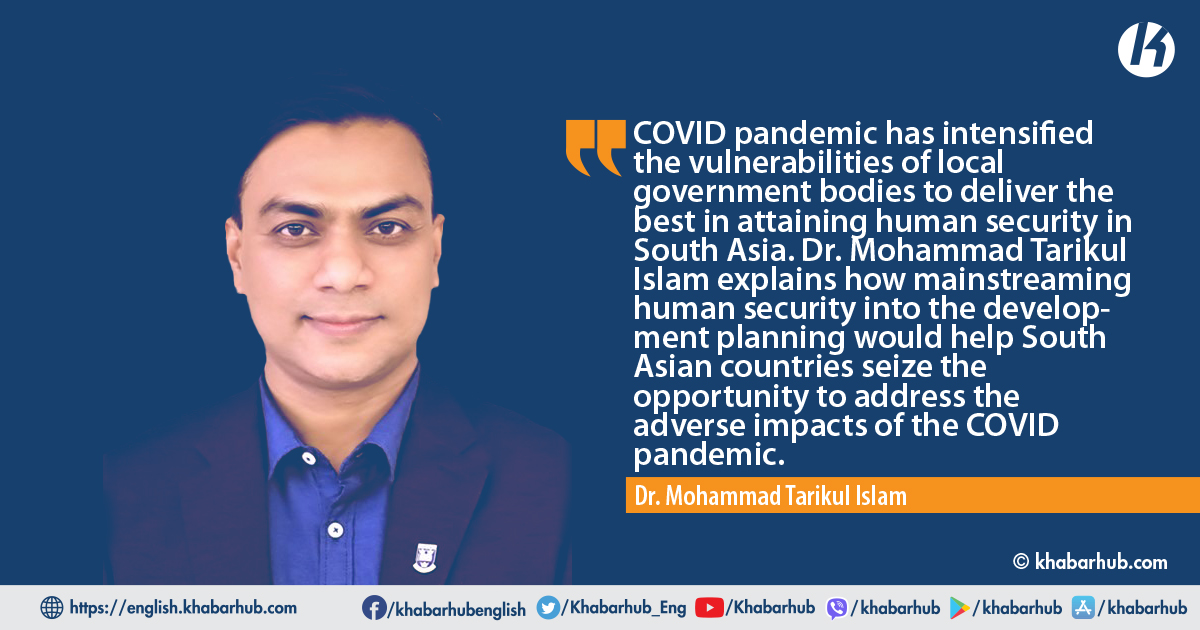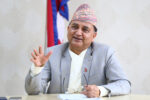South Asia has been advocating for human security, actively promoting it by utilizing the multi-stakeholders’ approach.
It has long shared the importance of achieving human security. Rural community development in South Asia led to not only socioeconomic improvement but had implications for social, economic and environmental systems.
Rural development in South Asia is found to be less progressive as most community-based organizations are reported to be inactive.
Besides, a lack of sense of belonging to development programs, increasing community dependency on outsiders’ help and the absence of community perceived development have contributed to the underdevelopment, resulting in human insecurity in rural South Asia.
Political security of the rural community is truly reflected only when they have access to the decision-making process of local government with freedom of choice for the selection of their representatives to the Union Parishad.
In general, the right to the security of one person is associated with liberty and includes the right, if one is imprisoned unlawfully, to the remedy of habeas corpus. Security of the person can also be seen as an expansion of rights based on prohibitions of torture and cruel and unusual punishment.
The formal justice system in South Asia is under tremendous pressure with much workload and an inadequate number of officials and staff members to dispose of the cases.
Inherently, people desire peace, human rights, prosperity, and social equity but delivering on these in the face of today’s complex challenges is beyond the scope and capacity of any single institution or actor.
A related criticism of the informal justice system is that it has little appreciation of rule of law and serves as an enforcer of often retrogressive norms.
South Asia is a disaster-prone country and disaster vulnerability possesses a threat to human security. Human security is at risk as disaster renders the community without food or shelter, impoverished, diseased, and displaced.
The government of South Asia is striving hard to ensure access of its rural population to basic health care and health services by the way of setting up primary health care centers.
The role of NGOs in promoting primary health services for mothers and children is notable. One of its responsibilities involves providing health security to the rural population, which is a challenging task given that only 30 percent of South Asia lives in cities and there is limited infrastructure and a lack of health professionals in rural areas.
The food security situation in rural South Asia over the years has somewhat improved and further improvements in access and utilization, to be sustainable and large-scale, need renewed efforts from the government, civil society organizations, and development partners.
Pandemic has shown us the importance of being prepared collectively when crises hit. Only such an approach can deliver win-win policies for people, the planet, and prosperity.
This pandemic also provides us with the opportunity to take a comprehensive look at the sustainability of our environmental, economic, and social systems to create more resilient societies emphasizing the proper implementation of SDGs.
The SDGs emphasize the need for an inclusive and localized approach where the promise to leave no one behind is embedded at the heart of the local government.
Achieving SDGs requires contextualizing development priorities and programming while local government is the best fit for implementing policies and programs for improved service delivery that can address poverty, reduce inequality, and climate vulnerability, and promote gender equity.
Participatory grassroots local government is indispensable for delivering on SDGs, particularly in poor and marginalized areas of South Asia.
In the wake of the COVID pandemic, people-centered development is the core of discourse as this approach appeared on the cutting edge of international development discourse focusing on self-belief, self-reliance, and community living with the spirit of togetherness, social justice, and participatory decision-making.
Unfortunately, it is far from being a reality in most developing countries. For example, best practices recognized by the international community—like standing committees, project implementation committees, grassroots political participation, or open budget discussions—are not widely employed in local governments.
Moreover, the COVID pandemic has certainly intensified the vulnerabilities of local government bodies to deliver the best in attaining SDGs.
Inherently, people desire peace, human rights, prosperity, and social equity but delivering on these in the face of today’s complex challenges is beyond the scope and capacity of any single institution or actor.
It requires partnerships among a broad range of stakeholders under a comprehensive development framework such as the 2030 Agenda for Sustainable Development.
The evolving crisis has been characterized by politicians, scholars and media organizations as the most perilous threat to human progress, peace, prosperity and stability since the Second World War.
The crisis enables us to rethink uplifting human security in the lives of the people and not in the weapons that states have.
Simply speaking, the human security approach recognizes the need to transcend fragmented responses in favor of people-centered, comprehensive, context-specific and prevention-oriented solutions with no one left behind.
As a multidimensional analytical framework, it strengthens the interlinkages between peace, development and human rights, and stimulates meaningful partnerships among United Nations entities, governments, civil society, the private sector and local communities to accelerate delivery, limit duplication and maximize the reach of scarce resources.
Last but not least, a strong local government with adequate resources, a delegation of authorities and a positive mindset of the political leaders in the developing countries severely affected by the COVID pandemic is a must for the localization of SDGs and improved governance at the grassroots level.
Applying the human security approach allows for a stronger integrated response that forges alliances to address current and emerging challenges with greater effectiveness together than alone.
In the wake of the COVID pandemic, people-centered development is the core of discourse as this approach appeared on the cutting edge of international development discourse focusing on self-belief, self-reliance, and community living with the spirit of togetherness, social justice, and participatory decision-making.
The government of South Asia is working hard to align its new course of action with the cutting edge of contemporary development discourse for regaining confidence in the implementation of SDGs amid the COVID pandemic.
As COVID-19 upends lives and livelihoods across the country, governments must stress a range of multilateral solutions to ease the pain, while also getting back on track towards achieving SDGs.
If the 2030 global agenda is implemented at the local level based on partnership with people of all segments of society, a massive socio-economic, environmental and ecological development will occur and the targets of SDGs will then be easily achieved.
SDG’s localization plan would be a quick-yielding remedy to counteract the Covid-19 fallout both in the medium and long term. Expansion of human security depends on sustainable development.
The gap between poverty and the rich must be diminished. Creating equalities and social justice can contribute to reducing the conflicts between urban and rural areas.
Last but not least, a strong local government with adequate resources, a delegation of authorities and a positive mindset of the political leaders in the developing countries severely affected by the COVID pandemic is a must for the localization of SDGs and improved governance at the grassroots level.
(Dr. Mohammad Tarikul Islam is an Associate Professor of Government and Politics at Jahangirnagar University)









Comment